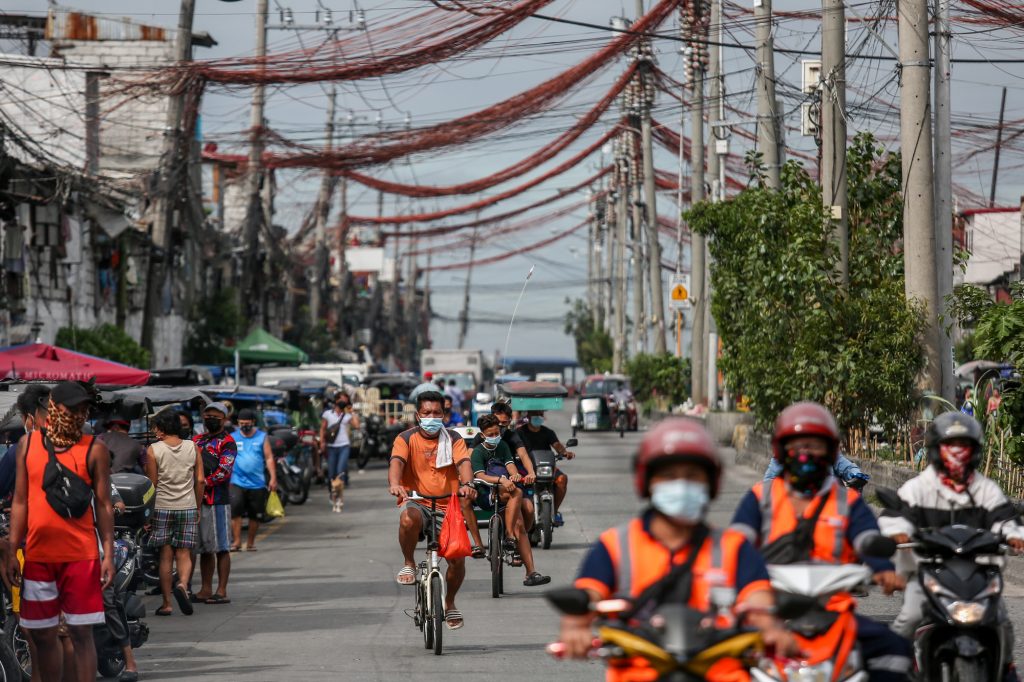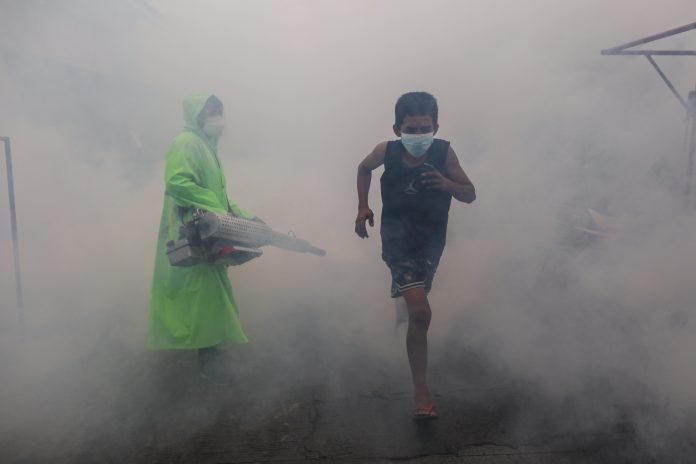A children rights group in the Philippines hit a proposal to prohibit minors aged 17 years and below from going outdoors in response to the increasing number of COVID-19 cases in the country.
The group Salinlahi Alliance for Children’s Concerns described the proposal as “anti-children” and questioned what it described as the seeming “punishment” of young people.
“We have been facing the pandemic for a year already, but the government is not offering any solution aside from strict measures,” said Eule Rico Bonganay of Salinlahi.
He said authorities failed to present evidence to justify the ban on minors leaving their residences.
Bonganay said that even healthcare professionals did not recommend a lockdown despite the surge in COVID-19 cases.
The Philippine capital Manila will start on Wednesday tightened health restrictions in a bid to tackle a new surge of COVID-19 infections.
The restrictions include the ban on minors from outside their homes for two weeks.
Only those aged 18-65 years old will be allowed out of their homes, said the Metro Manila Development Authority in a statement, citing an agreement among mayors.
The Philippines late last year started easing one of the world’s longest and strictest lockdowns though a rule that anyone under 15 must stay indoors in Manila remained in place.
The Southeast Asian country has seen a surge in COVID-19 cases this month, recording the largest daily increase since mid-August on Monday with 5,404 new infections.
Nighttime curfews have been reimposed since Monday for two weeks in Metropolitan Manila, the country’s coronavirus hotspot that is home to more than 12 million people.
Additional measures such as liquor bans and localized lockdowns in areas with high infection rates have also been put in place.
The extended age limit comes five months after authorities allowed people from 15 to 65 years of age to go out as part of efforts to revive an economy that suffered the worst slump on record last year.

Facing criticisms about a slow-moving vaccination drive, coronavirus strategy chief Carlito Galvez said more doses should arrive soon.
Nearly 2.4 million doses are expected by early April, comprising 979,200 doses of AstraZeneca’s vaccine through the COVAX facility and 1.4 million Sinovac shots including 400,000 donated by China, he said.
Galvez said there was no plan to halt the use of AstraZeneca’s vaccine to inoculate healthcare workers, even though several European countries have paused administering it after reports of possible serious side-effects.
The government has also signed an agreement with the Serum Institute of India for 30 million Novavax vaccine doses, due to arrive in the third or fourth quarter of the year, said Galvez. – with a report from Reuters









